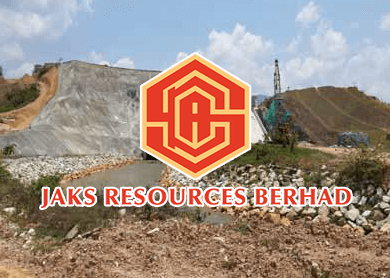
JAKS Resources Bhd is said to be courting Tenaga Nasional Bhd as a potential partner for its 2x600mw coal-fired power plant project in Hai Duong, northern Vietnam.
Sources say JAKS is currently in talks with Tenaga, offering the utility giant as much as 70% of the multibillion-ringgit project, the construction portion of which alone is estimated to cost about RM5 billion.
“JAKS is running out of time to achieve financial close to build the power plant.
It has already secured two deadline extensions for the engineering, procurement and construction contract from the Vietnamese authorities. Now, it has until October this year to show financial close,” says a source.
JAKS (fundamental: 0.65; valuation: 1.5) does not have the financial muscle to take on the project by itself, but it also does not want to give up a deal that offers it a high internal rate of return (IRR).
According to JAKS’ announcement to Bursa Malaysia, it will cost US$2.25 billion to build the power plant.
In its financial year ended Dec 31, 2014 (FY2014), JAKS’ cash balance stood at RM79 million compared with RM94.2 million a year ago while its long-term and short-term borrowings amounted to RM321 million and RM227 million respectively.
“That is why it needed Kaidi before,” says the source, referring to JAKS’ previous partner Wuhan Kaidi Electric Power Engineering Co Ltd.
“Whether Tenaga takes a stake in the project remains to be seen, although there are compelling reasons for it to do so,” the source adds.
Rumours of JAKS talking to Tenaga (fundamental:1.3; valuation: 1.8) about jointly undertaking the project could be the reason for the latter’s shares soaring in recent weeks. The stock rose 46.3% from April 2 to close at 79 sen last Friday — its highest level since July last year.
To recap, in June 2011, JAKS Hai Duong Power Co Ltd (JHDP) signed a contract with the Ministry of Planning and Investment of Vietnam to undertake the design, engineering, construction and operation of a power plant in Hai Duong Province for a 25-year period. It was scheduled to be fired up by 2018.
JAKS initially partnered Kaidi on the project with the Chinese party taking a 40% stake in it. However, Kaidi pulled out of the joint venture in 2013. In its announcement to Bursa in April that year, JAKS said the subscription and shareholders’ agreements entered into by its unit JAKS Power Holding Ltd and Kaidi had lapsed pursuant to the non-fulfilment of the conditions precedent by the Chinese contractor.
JAKS was required to complete the preconditions of the project, including achieving financial close, by March 31, 2014, but that was derailed by the termination of its agreement with Kaidi.
The deadline to achieve the preconditions and financial close has been extended twice since and the latest is Oct 31 this year.
The estimated annual output of the plant’s two generating units is 7.5 billion kilowatt hours with a maximum installed capacity of 1,200mw.
Sources say the project’s IRR is at least 15% because the power purchase agreement is on a take-or-pay basis, which requires Vietnam Electricity to pay for the power generated whether or not there is demand for it.
The agreement also has cost-pass-through mechanisms, including any volatility in fuel costs and exchange rates. JPHD will be paid in US dollars, which will increase JAKS’ exposure to foreign exchange volatility as it will have to convert the money into dong to pay its operational costs.
For starters, a 15% IRR is akin to the contracts signed by Tenaga with the local first-generation independent power producers, says the source, adding that Vietnam Electricity is committed to take up all the energy generated by the power plant or pay the generation costs.
Also, Tenaga’s participation in the power plant project with JAKS will add to its leverage when it comes to raising funds either through bank borrowings or debt issuance.
Tenaga is the largest publicly listed utility company in Southeast Asia with a market capitalisation of RM82.1 billion as at last Friday and total assets of RM100 billion.
“The current strong dollar environment is also a good time for companies to borrow in that currency,” the source says.
However, the PPA is structured such that Vietnam Electricity will pay 30% of the tariff at the beginning of the month and the rest at the end of the month. This gives rise to currency fluctuation risks for the power plant operator as the tariff will be paid in dong. And because the exchange rate is fixed at the beginning of the month, when the first 30% payment is made, there is additional currency fluctuation risk on the remaining 70% payment, the source explains.
Nevertheless, if Tenaga took up the project with JAKS, it would not be the company’s first overseas project as it is involved in power generation in several Asian countries, including Pakistan and the Maldives.
One more overseas power plant project will be another feather in Tenaga’s cap. As for JAKS, having the utility giant on board will be a huge relief because it will be in a new potentially lucrative sector and be able to diversify its earnings stream.
This article first appeared in The Edge Malaysia Weekly, on April 20 - 26, 2015.
Save by subscribing to us for your print and/or digital copy.
P/S: The Edge is also available on Apple's AppStore and Androids' Google Play.